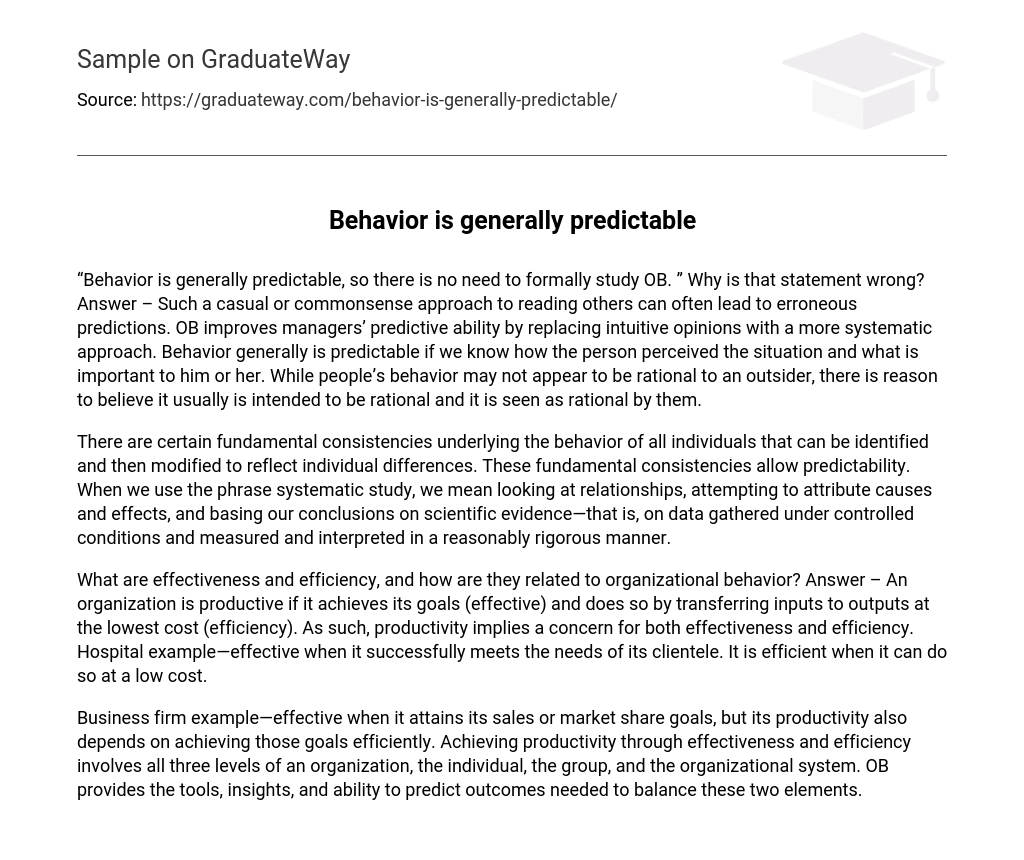“Behavior is generally predictable, so there is no need to formally study OB. ” Why is that statement wrong? Answer – Such a casual or commonsense approach to reading others can often lead to erroneous predictions. OB improves managers’ predictive ability by replacing intuitive opinions with a more systematic approach. Behavior generally is predictable if we know how the person perceived the situation and what is important to him or her. While people’s behavior may not appear to be rational to an outsider, there is reason to believe it usually is intended to be rational and it is seen as rational by them.
There are certain fundamental consistencies underlying the behavior of all individuals that can be identified and then modified to reflect individual differences. These fundamental consistencies allow predictability. When we use the phrase systematic study, we mean looking at relationships, attempting to attribute causes and effects, and basing our conclusions on scientific evidence—that is, on data gathered under controlled conditions and measured and interpreted in a reasonably rigorous manner.
What are effectiveness and efficiency, and how are they related to organizational behavior? Answer – An organization is productive if it achieves its goals (effective) and does so by transferring inputs to outputs at the lowest cost (efficiency). As such, productivity implies a concern for both effectiveness and efficiency. Hospital example—effective when it successfully meets the needs of its clientele. It is efficient when it can do so at a low cost.
Business firm example—effective when it attains its sales or market share goals, but its productivity also depends on achieving those goals efficiently. Achieving productivity through effectiveness and efficiency involves all three levels of an organization, the individual, the group, and the organizational system. OB provides the tools, insights, and ability to predict outcomes needed to balance these two elements.





